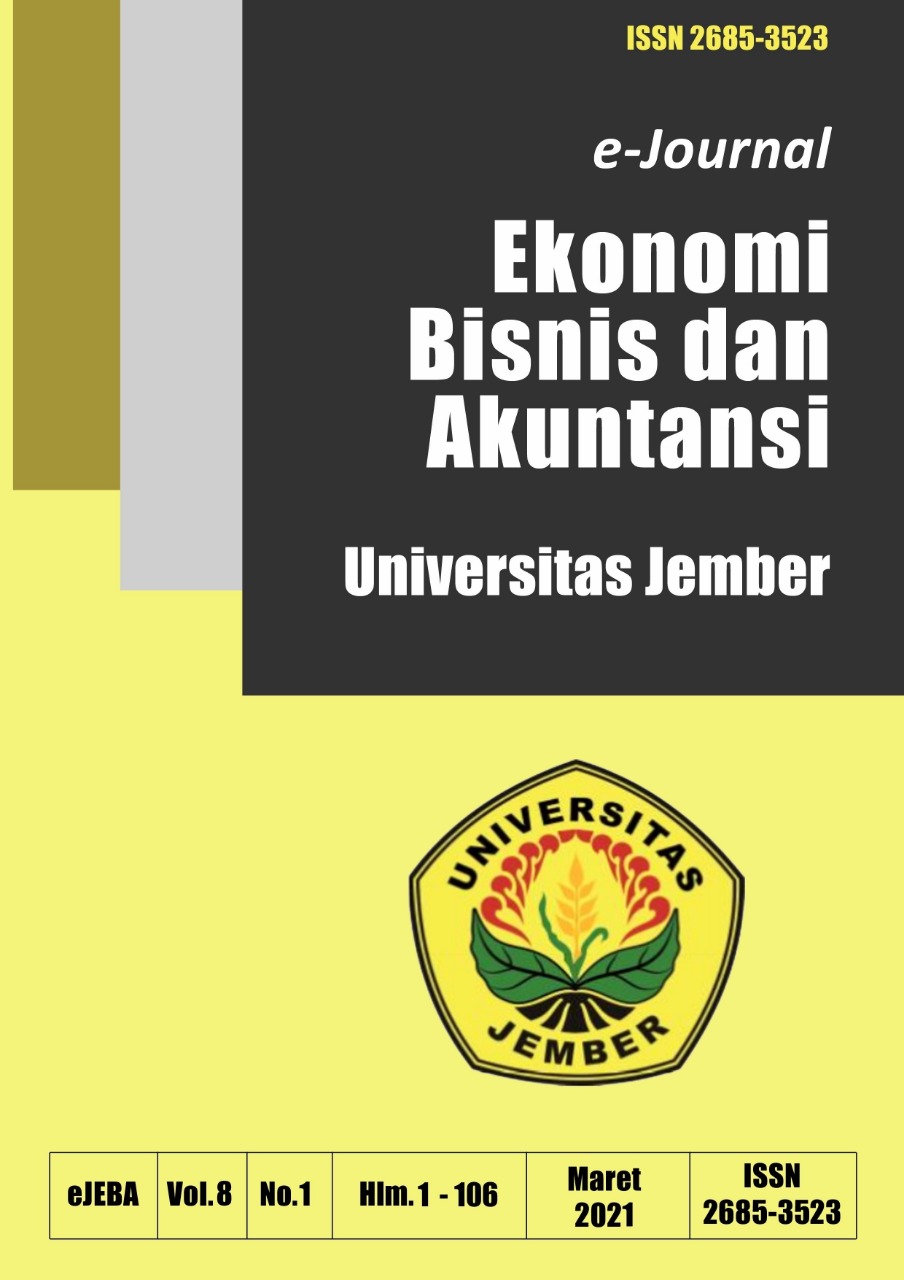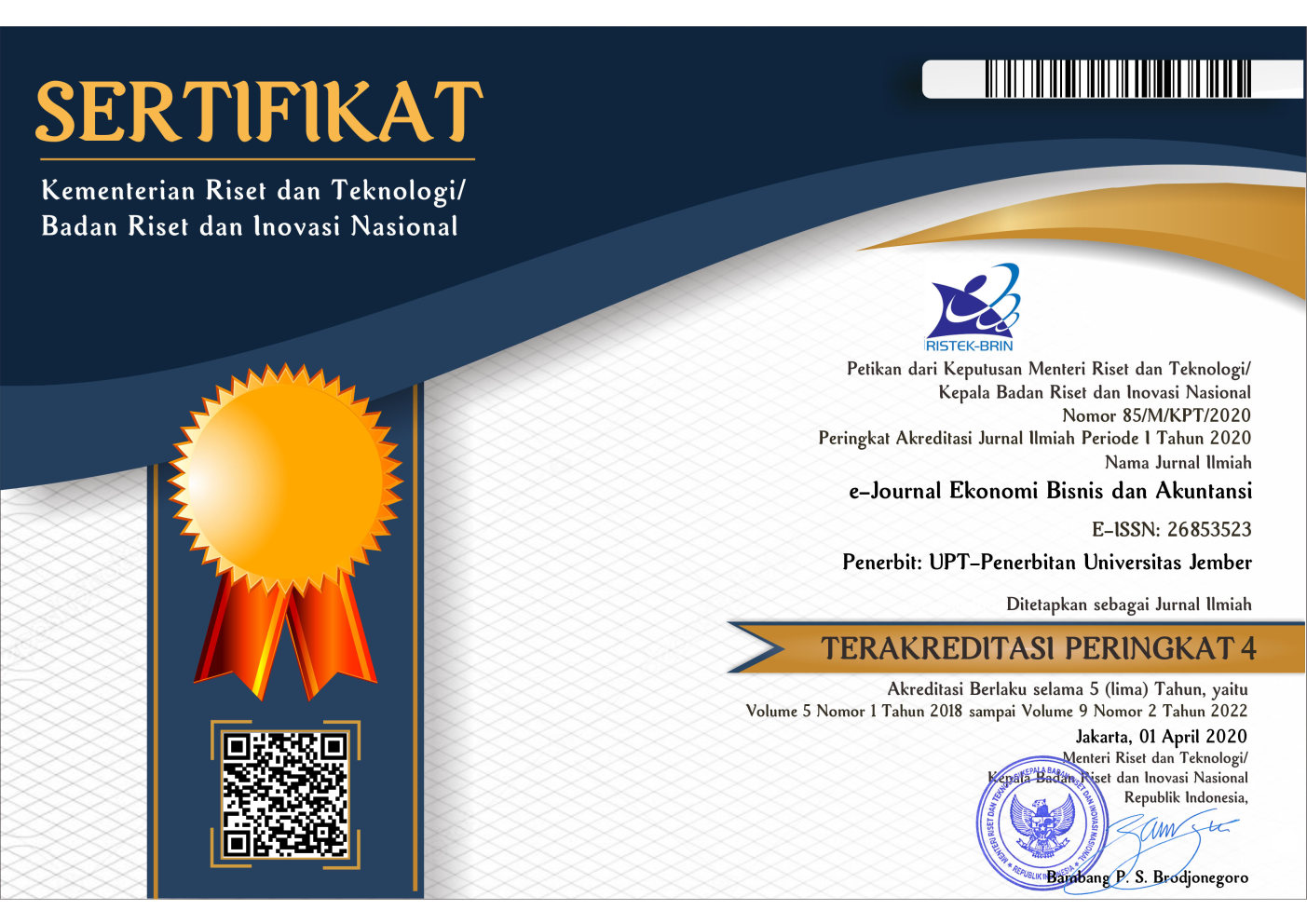Perilaku Keuangan Individu Muslim Indonesia: Studi Data IFLS5
(Personal Financial Behavior of Indonesian Muslims: IFLS5 Data Study)
Abstract
This study aims to understand the personal financial behavior of Indonesian Muslims empirically using data from the Indonesia Family Life Survey (IFLS) 5. IFLS5 provides broad information about indicators of a person's financial and demographic behavior such as education level, age, gender, and location of residence. The financial behavior data is based on individual data in the form of savings, income, and decision to take loans. The variables obtained from the IFLS5 data were then tested using the Ordinary Least Square (OLS) method. The results of the test show that the amount of saving is influenced by the amount of income, the decision to take a loan, the level of religiosity, level of education, and age. It is hoped that the results of this study can provide information on the determinants of the financial behavior of Indonesian Muslims based on savings decision. The positive influence of the level of religiosity on financial behavior is expected to give a positive signal to Islamic banks and use them to developing products based on shariah compliant.
Published
2021-03-31
How to Cite
YUANA, Pusvita.
Perilaku Keuangan Individu Muslim Indonesia: Studi Data IFLS5.
e-Journal Ekonomi Bisnis dan Akuntansi, [S.l.], v. 8, n. 1, p. 68 - 74, mar. 2021.
ISSN 2685-3523.
Available at: <https://jurnal.unej.ac.id/index.php/e-JEBAUJ/article/view/21525>. Date accessed: 22 dec. 2024.
doi: https://doi.org/10.19184/ejeba.v8i1.21525.
Section
Sharia Economics

















